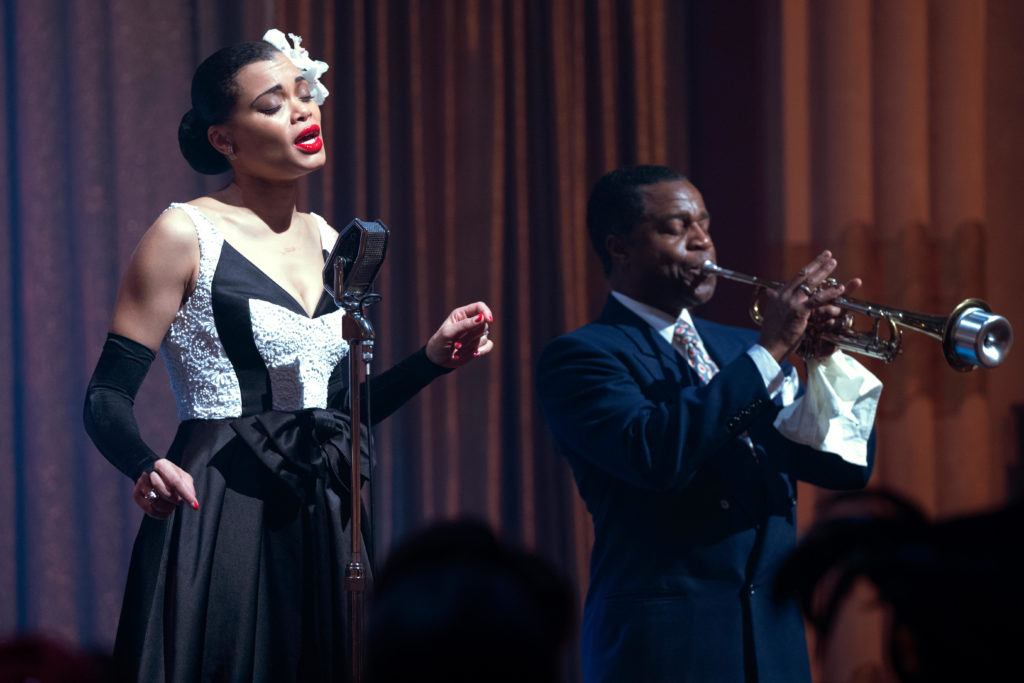The United States vs. Billie Holiday

Andra Day and Kevin Hanchard star in THE UNITED STATES VS. BILLIE HOLIDAY. (Photo: Hulu)
Volatile relationships form the dramatic thrust of The United States vs. Billie Holiday — not only the titular performer’s turbulent romances, but her drugs and her “Strange Fruit.”
The iconic jazz singer’s relationship with her signature song fortified her strength while also precipitating her tragic downfall, as chronicled in this stylish if uneven biopic from director Lee Daniels (The Butler).
“Southern trees bear a strange fruit. Blood on the leaves and blood at the root,” Holiday bellows a cappella at the outset of the anti-lynching ditty that made her a target for persecution by segregationists during her heyday in the 1940s.
The film tracks Holiday (Andra Day) at the height of her stardom. As strong-willed as she was talented, she packed smoky nightclubs and lavish auditoriums for audiences of all backgrounds.
Behind the scenes, though, things were messy, with escalating heroin abuse, an enabling entourage, and a revolving door of tumultuous affairs with opportunistic men wanting a piece of her success.
One of her lovers was Jimmy Fletcher (Trevante Rhodes), a Black agent for the Federal Department of Narcotics leading an undercover sting operation to bring her down on trumped-up narcotics charges.
In an audacious and magnetic debut, R&B singer Day’s fully committed performance digs deeper than mere mimicry of Holiday’s speech and mannerisms.
It’s the same role that provided Diana Ross with an Oscar-nominated breakthrough in Lady Sings the Blues (1972), which also is more noteworthy for its technical prowess than its narrative nuance. Incidentally, Ross’ son Evan has a small role here.
Day’s captivating portrayal of the glamorous and outspoken Holiday earns sympathy despite her character’s diva behavior. However, the treatment of social issues in the screenplay by Suzan-Lori Parks (Girl 6) is broad and muddled, which diminishes the emotional impact.
The film makes the common argument that Holiday was misunderstood and a legal scapegoat whose outspoken nature threatened the racial status quo.
The musical numbers provide a highlight, particularly the replication of a sold-out Carnegie Hall concert that conveys a fleeting moment of optimism about the power of music to unite people across cultures and ideologies.
Ambitious but overwrought, The United States vs. Billie Holiday showcases some evocative period visuals and deserves credit for avoiding cheap hagiography. Ultimately, although the film struggles to find its rhythm amid an abundance of melodramatic embellishments, Day’s voice really resonates.
Rated R, 130 minutes.